Brief professional biographies and subject matter expertise of the invited speakers and Chairs of our IOE Public Debates events.
Autumn 2020 - Summer 2021
- What if… we wanted more effective school improvement?
22 October 2020
Leora Cruddas, CEO, Confederation of School Trusts (CST)
Leora Cruddas is the CEO of the Confederation of School Trusts – the national organisation and sector body for school trusts in England. She has advised successive governments and sits on several Department for Education advisory bodies. She is Vice-Chair of the Head Teacher Standards Review Group. Prior to establishing CST, Leora was Director of Policy and Public Relations for the Association of School and College Leaders (ASCL).
Just before leaving ASCL, she established the Commission for Ethical Leadership, on which she served as a commissioner. She now sits on the Ethics Committee. She believes education is for the common good. Leora also has six years’ experience as a Director of Education in two London Local Authorities, and extensive experience at senior executive level of working with schools and trusts to improve the effectiveness and quality of education.
Tim Brighouse, Educator
Tim Brighouse retired from the post of London Commissioner for Schools in 2007 after five years of leading the London Challenge. Before that he spent 10 years as Chief Education Officer in Birmingham and 10 years as CEO in Oxfordshire, separated by four years as Professor of Education at Keele University. Earlier he worked in a number of authorities and schools. Since 2007 he has continued speaking and writing, mainly about school improvement.
Lucy Heller, Chief Executive, Ark
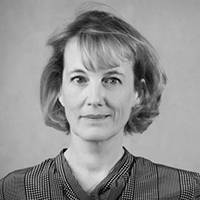
Lucy joined Ark in 2004 from TSL Education, a subsidiary of News International, where she was joint Managing Director. Her previous roles include General Manager of The Observer and Executive Chairman at Verso, a trade and academic publisher.
She has worked for many years with a number of charitable and voluntary organisations including the Marshall Commission, Community Links and the Bush Theatre.
Chair: Ann Mroz, Editor and Digital Publishing Director, Tes
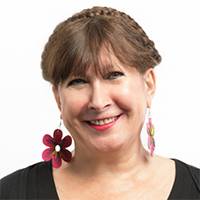
Ann Mroz is Editor and Digital Publishing Director of Tes. She sits on the education advisory group of the Sutton Trust, the advisory board of the Education Endowment Foundation and the advisory board of the Education Policy Institute.
She is also a member of the Princeton University Press European advisory board, a trustee of the charity Shine, a trustee of Iris - the Institute for Research in Schools and a fellow of the Royal Society of Arts. Ann joined Tes in 2012 and was previously editor of Times Higher Education
- What if… we took play more seriously in the school system?
3 December 2020
Shahneila Saeed, Head of Education and Programme Director of Digital Schoolhouse, The Association for UK Interactive Entertainment (Ukie)
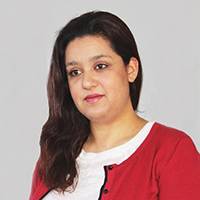
With over twenty years of experience in computing education, Shahneila has seen the changes to the computing curriculum from many perspectives. As a teacher and Head of Department she led her department's transition to computing several years ahead of government changes. In 2014, Shahneila joined Ukie to become Head of Education and Director for the nationwide Digital Schoolhouse programme.
She is the author of 'Hacking the Curriculum: Creative Computing and the Power of Play', a book that uses play-based learning to teach computing. Her latest book, 'How to Raise a Tech Genius: Develop Your Child’s Computing Skills Without Spending Any Money' introduces computer science concepts using only household objects.
Sara Baker, Reader in Developmental Psychology and Education, University of Cambridge
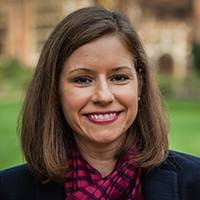
Sara Baker is a Reader in Developmental Psychology and Education at the University of Cambridge. She is also a Principal Investigator in the Centre for Research on Play in Education, Development and Learning. Her research aims to improve children’s lives by identifying factors at home and school that can support their agency over their own learning, for example using playful approaches to build self-regulation.
Sara's projects have been funded by the Newton Trust, a Cambridge Humanities Research Grant, the Economic and Social Research Council, the LEGO Foundation and the Nuffield Foundation.
Tom McBride, Director of Evidence, Early Intervention Foundation (EIF)

Tom leads the evidence generation work across EIF. He has 15 years of experience of public sector research and analysis roles. He joined EIF from the Department for Education (DfE), where he led the Strategic Analysis function, providing analytical support across all areas of DfE policy. Much of his work focused on the performance of disadvantaged children, and the role of education in improving social mobility.
Prior to that, Tom worked for eight years at the National Audit Office. He developed and led the Decision Analysis and Modelling group, as well as designing and delivering multi-method evaluations across a range of government activity, including end-of-life care, PFI hospitals and government forecasting. Tom has a BSc in genetics and an MA in bioethics from the University of Sheffield.
Michael Rosen, Professor of Children's Literature at Goldsmiths, University of London

Michael Rosen is one of Britain’s best-loved writers and performance poets for children and adults. He is currently Professor of Children’s Literature at Goldsmiths, University of London where he co-devised and teaches critical approaches to reading on an MA in Children’s Literature. He was the Children’s Laureate from 2007-2009.
Michael is also a popular broadcaster. He is a frequent contributor to news or arts radio and TV programmes on the subject of children’s reading, poetry and literature in general. Michael has published over 200 books for children and adults, including 'The Sad Book' with Quentin Blake (Walker Books), 'We’re Going on a Bear Hunt' with Helen Oxenbury (Walker Books) and ‘The Book of Play’ with Charlotte Trounce (Wellcome Collection).
He writes a monthly open 'letter' to the Secretary of State for Education in The Guardian where he critiques Government policy on schools from the standpoint of a parent. His website is regularly updated with news of past and future events and a regular blog on poetry-teaching ideas for teachers.
Chair: Dominic Wyse, Professor of Early Childhood and Primary Education
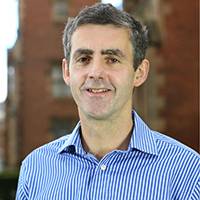
Professor Dominic Wyse is Founding Director of the Helen Hamlyn Centre for Pedagogy (0-11). He is a Fellow of the Academy of Social Sciences (FAcSS), was Vice-President then President (2019-21) of the British Educational Research Association (BERA), and a fellow of the Royal Society for the encouragement of Arts, Manufactures and Commerce (RSA).
Before joining the IOE, Dominic was a Senior Lecturer at the University of Cambridge. He was appointed as the first Director of Music-Making at Churchill College Cambridge, where he was also a Fellow and Director of Studies for Education. Dominic’s expertise in music began with his undergraduate studies at The Royal Academy of Music. In the past, Dominic was a teacher with experience working in London, Bradford and Huddersfield in infant and junior phases.
- What if... we wanted all children to read for pleasure?
19 January 2021
Joseph Coelho, multi-award-winning children’s author and poet
Joseph Coelho's debut children's collection Werewolf Club Rules is published by Frances Lincoln and was the winner of the Centre for Literacy in Primary Education's CLiPPA Poetry Award. His collection for older readers, Overheard In A Tower Block went on to numerous long and short-listings for various awards including the Carnegie Medal. His picture book If All The World Were… illustrated by Allison Colpoys won the Independent Bookshop Week, Book Award.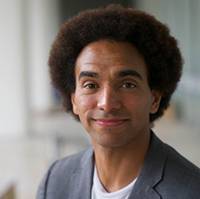
In 2020 Joe published: The Girl Who Became A Tree (illustrated by Kate Milner, Otter-Barry Books); Zombierella: Fairy Tales Gone Bad (illustrated by Freya Hartas, Walker Books); and Thank You (illustrated by Sam Usher, Frances Lincoln). Joe has also written and presented Teach Poetry, a 10-part BBC online series that aims to make the writing of poetry fun and accessible to all. See Joseph Coelho's website.
Charlotte Hacking, Learning Programmes Leader at children's charity the Centre for Literacy in Primary Education (CLPE).
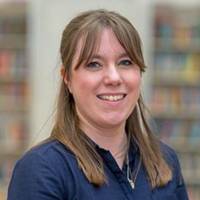
An experienced teacher and senior leader, Charlotte taught across the primary school age range before holding several posts including Assistant Headteacher and Leadership posts in Literacy, Early Years Foundation Stage, more able pupils and KS2.
She was a literacy advisor within a Local Authority, focussing on Early Years, Phonics and Primary Literacy. She leads the teaching team at CLPE with responsibility for CLPE’s Learning Programmes and Research, including the Power of Reading programme. In 2020, Charlotte joined the Helen Hamlyn Centre for Pedagogy (0-11 Years) as a member of the Practitioner Advisory Board.
Charlotte's special interests lie in Early Years, early reading development, the development of writing and the use of picturebooks and poetry to raise children's engagement and attainment. She developed and leads the CLPE's ground breaking Power of Pictures research, investigating the impact visual literacy and illustration can have on children’s reading and writing. Charlotte also led and developed the CLPE's Power of Poetry research project, designed to highlight the importance of poetry as a vehicle for improving children’s engagement in and enjoyment of reading and creative writing in schools, as well as being on the judging panel for the CLPE poetry award, CLiPPA.
Gemma Moss, Professor of Literacy and Director of the International Literacy Centre, UCL Institute of Education.
Professor Gemma Moss is interested in the shifting relationships between policymakers, practitioners, and stakeholders that are reshaping the literacy curriculum, and the use of research evidence to support policy and practice.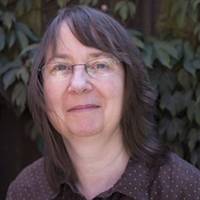
She was president of the British Educational Research Association (BERA) between 2015 and 2017, and has served on BERA Council and as the Association’s vice president, as well as acting as the convenor of BERA’s Educational Research and Educational Policy-Making special interest group.
Alice Sullivan, Professor of Sociology, and Head of Research at the Social Research Institute, UCL Institute of Education.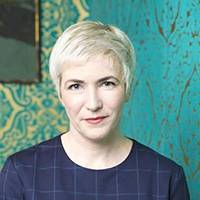
Professor Alice Sullivan was Director of the 1970 British Cohort Study from 2010-2020. Her research uses quantitative and longitudinal methods to analyse educational and social inequalities.
Chair: Dominic Wyse, Professor of Early Childhood and Primary Education
Professor Dominic Wyse is Founding Director of the Helen Hamlyn Centre for Pedagogy (0-11 Years). He is a Fellow of the Academy of Social Sciences, was Vice-President then President (2019-21) of BERA, and a fellow of the Royal Society for the encouragement of Arts, Manufactures and Commerce.
- Before joining the IOE, Dominic was a Senior Lecturer at the University of Cambridge. He was appointed as the first Director of Music-Making at Churchill College Cambridge, where he was also a Fellow and Director of Studies for Education. Dominic’s expertise in music began with his undergraduate studies at The Royal Academy of Music. In the past, Dominic was a teacher with experience working in London, Bradford and Huddersfield in infant and junior phases.
- What if… we wanted to overcome COVID-19’s impact on girls’ access to education?
2 February 2021
Alice Albright, Chief Executive Officer of the Global Partnership for Education.
Alice has over 30 years of international experience in the private, non-profit and public sectors. She previously served as the Executive Vice President and Chief Operating Officer of the Export-Import Bank of the United States (Ex-Im Bank), and the Chief Financial and Investment Officer for the Global Alliance for Vaccines and Immunizations (GAVI).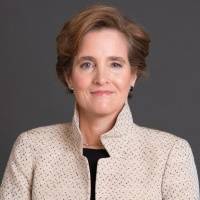
Beforehand, Alice worked in banking, principally at J.P. Morgan. She received a B.A. with honors from Williams College and holds an M.A. from Columbia University’s School of International and Public Affairs, and is a Charted Financial Analyst. Alice serves on the Board of Directors of the UNESCO Institute for Statistics, Global Board of UNICEF’s Generation Unlimited, the Board of Regents at Mercersburg Academy, and is a member of the Council on Foreign Relations. More recently, Alice was nominated by the President of France to serve a member of the 2019 G7 Gender Equality Advisory Council.
Marelize Gorgens, Senior Specialist, World Bank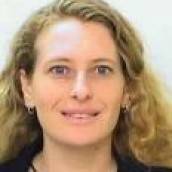
Marelize is a senior specialist focusing on decision science, digital health, and artificial intelligence as tools to improve the efficiency, effectiveness, and implementation of health and human development programs in low and middle-income countries.
Girish Menon, Chief Executive Officer of STIR Education
Girish joined STiR in January 2021 after five years as Chief Executive at ActionAid UK. He brings more than 30 years’ experience as a leader in the international development sector, having previously held roles as International Programmes Director and Deputy CEO at Water Aid UK, where he was responsible for programmes in 22 countries across sub-Saharan Africa and South Asia.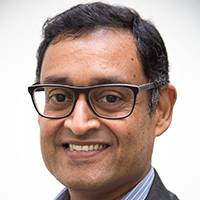
Girish was born and brought up in India, and started his career with the Aga Khan Rural Support Programme. He has also worked at Action Aid, Plan International and DFID in India. Since moving to London in 2005, he has served on the boards of various non-profit organisations. He is currently on the Board of Hope and Homes for Children.
Elaine Unterhalter, Professor of Education and International Development, UCL Institute of Education (IOE)
Professor Elaine Unterhalter is Co-Director of the Centre for Education and International Development at the IOE. She has written extensively on gender and girls' schooling in developing countries. Her books include Beyond Access: Developing Gender Equality in Education (co-edited with Sheila Aikman), Gender, Schooling and Global Social Justice, and Education, Poverty and Global Goals for Gender Equality: How people make policy happen (co-authored with Amy North).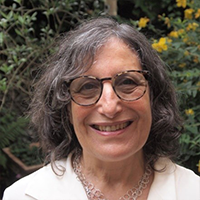
She has participated in research projects on gender and girls' schooling in South Africa, India, Bangladesh, Tanzania, Kenya, Ghana and Nigeria, and her work includes studies of a number of global organisations. She has written reports to support policy making commissioned by a wide range of national and international organisations including UNESCO, UNGEI, UNICEF, Global Partnership for Education, UN Women, DFID, and ActionAid. She is currently leading the ESRC funded project Accountability for Gender Equality in Education (AGEE).
Chair: Moses Oketch, Professor in International Education Policy and Development, UCL Institute of Education.
Professor Moses Oketch is Co-Director of the Centre for Education and International Development (CEID) at the IOE. His research focuses on the connection between the theory of human capital and implementation of policies in the areas of economics of education, education policy analysis, and impact evaluation.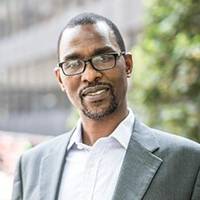
Previously he worked at Vanderbilt University, University of Illinois at Urbana-Champaign, and in 2012 was a Visiting Professor at University of Pennsylvania. He has also contributed to and supported research capacity strengthening in Africa through his involvement with African Population and Health Research Centre (APHRC) as a Senior Research Scientist and Director of Research. He received his PhD from the University of Illinois at Urbana-Champaign focusing on economics of education.
- What if… we wanted to better equip young people to address climate change?
18 March 2021
Douglas Bourn, Professor of Development Education, IOE
Professor Douglas Bourn is the Director of the Development Education Research Centre at the IOE. He came to the IOE in 2006 from being Director of the Development Education Association. He has a background in global youth work and environmental campaigning.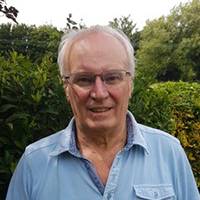
He is the author of Theory and Practice of Development Education (2015), Understanding Global Skills (2018), editor of Development Education: Debates and Dialogues (2008) and the Bloomsbury Handbook of Global Education and Learning (2020). He has written extensively on areas such as global learning and global citizenship and education for sustainable development for a range of academic journals and book chapters. Later this year Bloomsbury will be publishing his next book on Education for Social Change.
Professor Bourn has been an advisor to numerous UK government initiatives in areas such as sustainable development, global citizenship, and development awareness. Professor Bourn founded the Journal International Journal of Development Education and Global Learning in 2008 and remains today a member of its Editorial Board. He is currently a member of the Programme Advisory Board for the UK government-funded programme on Connecting Classrooms Through Global Learning. He also chairs the Advisory Board for the International Network of Global Education Academics and Researchers (ANGEL) and also Global Learning London.
Laura Kravac, Head of Programmes, Action for Conservation
Laura Kravac is the Head of Programmes at Action for Conservation (AFC), a UK charity working to empower young people from diverse backgrounds to become the next generation of environmentalists. She helps lead AFC's efforts to drive systemic change within the sector to give young people more voice in environmental decision making.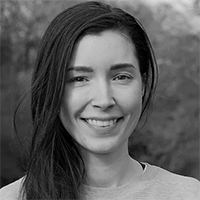
In 2019, she supported the launch of the Penpont Project, AFC's flagship project and the largest youth-led nature restoration initiative in the world, and is currently helping to drive Race for Nature's Recovery, a new programme supporting young people from underrepresented backgrounds to work in the environmental sector.
She's been involved, and has involved young people, in consultations around newly proposed Natural History GCSE and coordinates AFC's support for the Teach the Future campaign, a youth-led campaign aiming to decarbonise and decolonise the secondary curriculum.
Miranda Lowe, Principal Curator and museum scientist, Natural History Museum, London
With over two decades worth of collections management and curatorial skills, Miranda cares for a plethora of historically important specimens from both the HMS Challenger and RRS Discovery oceanic expeditions.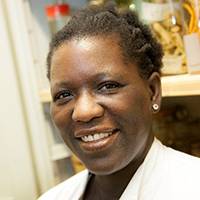
She is passionate about the role museum exhibitions play in our understanding of the natural world and her research interests lie in Ecology, Zoology and Marine Biology. Most recently she has received the accolade of being listed in BBC Radio 4 Women's Hour Power List 2020: Our Planet.
Alex Standish, Associate Professor of Geography Education, IOE
Dr Alex Standish is a Fellow of the Royal Geographical Society. At the IOE he works in teacher training and supervises masters and doctoral students.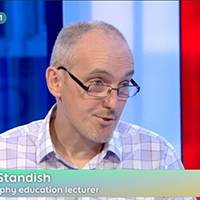
Alex is an advisor to the Department for Education, the Mayor’s Office, Cambridge Examinations, as well as several London schools with respect to curriculum and teacher education. Alex is also a member of the Cambridge Assessment Higher Education National Forum. He is the co-organiser of Fawcett Lectures and the Fawcett Fellowship scheme both for geography teachers. Alex previously taught at Western Connecticut State University and completed his PhD at Rutgers University, New Jersey.
Alex has recently published a book called Making Sense of Climate Change (2021). This book is written by educators to help teachers, parents and carers explain this complicated and sometimes frightening subject to young people.
Chair: Professor Sue Rogers, Interim Director of the UCL Institute of Education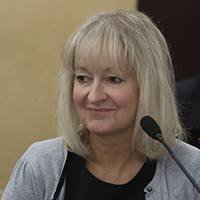
Sue is an early childhood development and primary education specialist with research interests in pedagogy and curriculum, the role of play in early learning, professional learning in the early childhood workforce, and approaches to evidence-informed practice. Her recent publications include A Guide to Early Years and Primary Teaching (2016, edited with Dominic Wyse), Adult Roles in the Early Years (2012, with Janet Rose), and Rethinking Play and Pedagogy: Concepts, Contexts and Cultures (2011).
- What if... we really wanted to close the attainment gap ‘post-Covid’?
22 April 2021
Jon Hutchinson, Assistant Headteacher at Reach Academy Feltham and Visiting Fellow at Ambition Institute
At Reach Academy Feltham, an all-through school in southwest London, Jon Hutchinson's responsibility is primarily curriculum and assessment in the primary phases of the school, but he has experience teaching A-Level as well. The ReachOut Curriculum, which was designed by Jon with colleagues from Reach Academy Feltham, is now taught in over 150 schools.
Jon is also a Visiting Fellow for Ambition Institute, where he tutors on the Masters in Expert Teaching Course. Jon has acted as an expert independent advisor to the DfE, Ofsted and the STA, most recently as a core member of the group that developed the Early Career Framework.
Ruth Lupton, Honorary Professor of Education, University of Manchester
Ruth previously worked at the IOE and at the Centre for Analysis of Social Exclusion (CASE) at LSE. Her research focuses on poverty, inequality, education and place.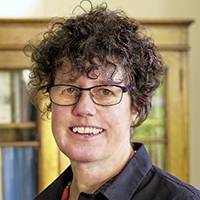
Her recent work includes the book titled Responding to Poverty and Disadvantage in Schools (Palgrave Macmillan), and reports on the Conservative government’s record on education (CASE) and on post-16 transitions for young people with lower GCSE attainment.
Her new book with Debra Hayes entitled Great Mistakes in Education Policy: and how to avoid them in the future will be published by Policy Press on 23 April.
Hetan Shah, Chief Executive of the British Academy
Hetan is Chief Executive of the British Academy, the UK’s national academy for the humanities and social sciences. He is Visiting Professor at the Policy Institute, Kings College London, and serves as Vice-Chair of the Ada Lovelace Institute, which focuses upon how to ensure artificial intelligence and data are used for public good.
Hetan is on the board of The Legal Education Foundation, a philanthropic body supporting a better justice system. He is a trustee of St George’s House, a charity based in Windsor Castle which organises discussions on issues of public interest. Hetan is also on the advisory board of the Science Media Centre and the Bennett Institute for Public Policy at the University of Cambridge.
Sammy Wright, Vice Principal of Southmoor Academy in Sunderland
Between 2002 and 2014 Sammy taught in London, experiencing the full range of contexts from deprived and multi-ethnic inner-city comprehensives to the affluent suburbs.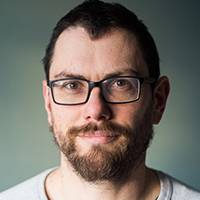
He arrived in the North East five years ago to set up the first non-faith school-based Sixth Form in Sunderland at Southmoor, and since then has gone on to establish the North East’s first OxNet hub at the school. With Southmoor students now going on to Oxford, Cambridge and Russell Group institutions, he has been working with other schools and universities across the region to increase participation in elite education by those from disadvantaged and marginalised backgrounds.
Chair: Lindsey Macmillan, Professor of Economics, IOE
Lindsey Macmillan is Director of the Centre for Education Policy and Equalising Opportunities (CEPEO). She is also a Research Fellow at the Institute for Fiscal Studies.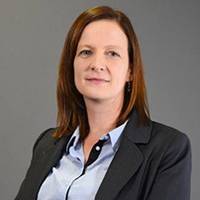
Her research considers the role of early skills, education, and labour market experience in the transmission of incomes and work across generations. She has published widely on areas relating to intergenerational mobility, educational inequalities, and the role of family background in access to jobs.
- What if... we got rid of GCSEs?
29 April 2021
Tina Isaacs, Honorary Associate Professor of Educational Assessment, IOE
Tina returned to Higher Education in 2009 after 15 years of working for NCVQ, QCA and Ofqual, primarily in the field of 14-19 qualifications, including Diploma, Functional Skills, GNVQ, GCSE, GCE A levels and Advanced Extension Awards.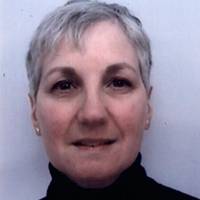
Immediately prior to that, she worked for the National Center on Education and the Economy in Rochester New York. Her research interests include educational assessment, education policy and politics, qualifications development, accreditation and regulation and comparative studies.
Tim Oates, Group Director of Assessment Research and Development, Cambridge Assessment
In 2010 Tim published ‘Could do better’ which laid down the principles for the review of the National Curriculum in England and chaired the Expert Panel for the Review. Subsequent research on the quality and function of textbooks and other resources has been taken up around the world.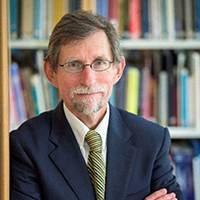
He routinely provides briefings and policy advice to UK and other governments. He is Fellow of Churchill College Cambridge and in 2015 received a CBE for services to education.
Dennis Sherwood, Managing Director of Silver Bullet
Dennis Sherwood runs his own consulting business, Silver Bullet, specialising in organisational innovation and creativity; earlier in his career, Dennis was a consulting partner at Deloitte, Haskins & Sells, an Executive Director at Goldman Sachs, and UK Managing Director of SRI International.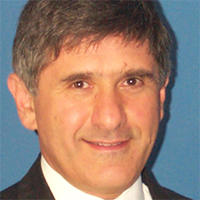
Dennis has degrees from Clare College Cambridge, Yale, the University of California at San Diego, and London Business School, and is the author of many journal articles and 11 books. Over recent years, Dennis has been studying the (un)reliability of school exam grades, and is currently an active campaigner to make them reliable and trustworthy.
Dr Gill Wyness, Associate Professor of Economics, IOE
Gill Wyness is Deputy Director of the Centre for Education Policy and Equalising Opportunities at the IOE. She is also a Research Associate at the Centre for Economic Performance at LSE. She is an applied economist and specialises in quantitative methods.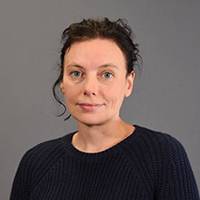
Her main research area is the economics of tertiary education, and she is particularly interested in inequalities in university participation and attainment, and the drivers of it – including higher education finance, information advice and guidance, and school factors. Her work has been published in the Economics of Education Review and the Journal of Human Capital.
Chair: Mary Richardson, Associate Professor of Educational Assessment, IOE
Mary leads the Educational Assessment MA in the IOE's Department of Curriculum, Pedagogy and Assessment. She has worked in assessment research for over 20 years. She began the department of Research and Statistics for AQA, where she conducted national studies relating to school-based examinations, testing regimes in schools and the impact of testing on children, alongside the key role in awarding national examinations.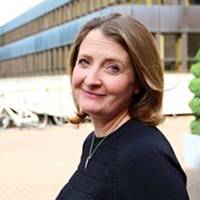
She is a member of the Research Advisory Group for Qualification Wales, and sits on the Pearson PTE Academic Technical Advisory Group on AI technology and testing and on AQA's Research Advisory Group.
- What if… we placed greater value on arts education in our schools system?
27 May 2021
Ed Dorrell, Director of Public First
Before taking up his role as director of Public First, Ed was deputy editor of the Times Educational Supplement (TES) for seven years, a role he combined with being comment editor. Before that he was news editor for five years.
He has also written for most national papers including the Guardian, the Times, the Telegraph and the Independent. He is known for his sharp policy analysis, his wide ranging network in the media, and his skill at writing and shaping news and opinion from leading politicians, chief executives, high profile individuals, and large and small organisations.
Emily Gopaul, art education consultant and the author of Teaching Primary Art & Design
Emily Gopaul is a freelance art education consultant, working within both the cultural and educational sector.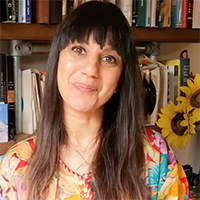
Her work is driven by a commitment to creating and promoting relevant and engaging art education experiences that represent communities and individuals. She brings 15-years’ experience teaching and leading on art in a diverse range of inner-London schools in both secondary and primary settings.
Her book Teaching Primary Art and Design was published by Bloomsbury in 2018, written to support primary art leaders in contextualising practical art activities using art history and contemporary art practices.
She leads professional development and teacher-training courses for schools and teacher-training providers, and works with the NSEAD as a consultant and a member of their Anti-Racist Art Education Action Group.
Isobel Traunter, PhD scholar at the IOE's Helen Hamlyn Centre for Pedagogy (0-11 years)
Isobel is in her final year of studying for a PhD exploring visual art in the early years foundation stage (EYFS) curriculum from the perspectives of both children and teachers.
Isobel is interested in the views of early childhood teachers and their pupils regarding the factors influencing visual art's status in the curriculum in English classrooms. Her research uses qualitative and participatory methods.
Prior to applying for the PhD, Isobel worked as an early childhood teacher and as an art teacher in Primary schools and Nurseries in both England and Hong Kong and studied an MA in Early Childhood Education at the University of Hull.
Andria Zafirakou, 2018 Global Teacher Prize Winner and Arts and Textiles teacher at Alperton Community School, London
Andria Zafirakou won $1 million when she was crowned the best teacher in the world. She has worked her entire teaching career of 15 years at Alperton Community School and was promoted to Deputy Head of Art within a year of her arrival. She is now Associate Deputy Headteacher leading on Coaching.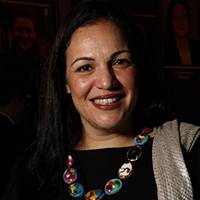
Using the prize money awarded by the Global Teacher prize, Andria founded a charity called Artists in Residence (AiR) with an aim to improve arts education in schools. She is a Culture Leader for the World Economic Forum as well as a member of their Global Future Leaders Council.
Andria sits on the Advisory board for the Cultural Leaders Alliance and was the winner of the prestigious GIWA (Greek International Women's award) for Arts and Culture in 2021. Her best-selling book “Those who can, Teach” has been published by Bloomsbury in April 2021.
Chair: Dominic Wyse, Professor of Early Childhood and Primary Education at the IOE
Professor Dominic Wyse is Founding Director of the Helen Hamlyn Centre for Pedagogy (0-11 Years). He is a Fellow of the Academy of Social Sciences, was Vice-President then President (2019-21) of BERA, and a fellow of the Royal Society for the encouragement of Arts, Manufactures and Commerce.
Dominic’s research focuses on curriculum and pedagogy. He has researched creativity and the arts throughout his career, for example in his book ‘How Writing Works: From the invention of the alphabet to the rise of social media’ which includes comparisons between the creative processes in the composition of music and the composition of text.
Autumn 2019 - Summer 2020
- What if… education policy was shaped by a commitment to social justice?
5 December 2019
Louise Archer, Karl Mannheim Professor of Sociology of Education, IOE
Louise is co-chair (with Professor Jessica Ringrose) of the IOE’s Centre for Sociology of Education and Equity (CSEE). Her research focuses on educational identities and inequalities, particularly in relation to gender, ethnicity and social class.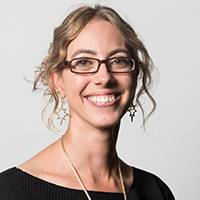
She has directed numerous research studies, and is currently the Principal Investigator (PI) of the 10-year, ESRC-funded ASPIRES/ ASPIRES2 study (tracking young people’s science and career aspirations, age 10-19) and the UK PI of the four-year Wellcome Trust/US National Science Foundation-funded Youth Equity + STEM project.
Dan Morrow, CEO, Woodland Academy Trust
Dan has a proven track record in school improvement and strategic leadership and systems leadership are his passion. His own leadership journey has seen him lead at a senior level in an all through, a secondary and, prior to his appointment to the Trust, a primary school. His main learning has been that leadership vision, values and behaviours are more crucial than context in securing rapid and sustained progress.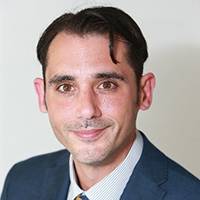
By ensuring high expectations, underpinned by accountability structures built on credibility and integrity, Dan has led schools to be outstanding in every category and turned schools from special measures to good in all categories within 12 months. Leading on accountability means ensuring clear goals and targets are set, monitored and underperformance is quickly challenged and addressed, through support and quality assurance.
Iesha Small, Speaker and Head of Strategy, Youth Hostels Association (England & Wales)
Iesha has particular interests in creating a fairer society and mental health. She spent three years of influencing practice and policy at the Centre for Education and Youth. Previously she was an assistant headteacher and maths teacher. Iesha writes about education and society for The Guardian and has been a columnist for Schools Week. She has also been seconded to the DfE and has served as a school governor.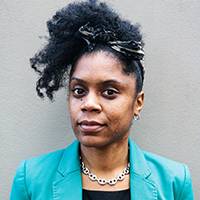
Iesha has spoken in an expert capacity for organisations including Chartered College of Teaching, The Church of England and Channel 5 news. She has contributed to books covering education, mental health, and gender. She is also the author of The Unexpected Leader.
Dr Jason Arday, Assistant Professor in Sociology, Durham University
Jason is a Visiting Research Fellow at The Ohio State University in the Office of Diversity and Inclusion, a Research Associate at Nelson Mandela University in the Centre for Critical Studies in Higher Education Transformation and a Trustee of the Runnymede Trust - the UK’s leading race equality think-tank. Jason sits on the Centre for Labour and Social Studies (CLASS) National Advisory Panel and is a School Governor at Shaftesbury Park Primary School in London. He was formerly an Elected Steering Committee Member of Comprehensive Future.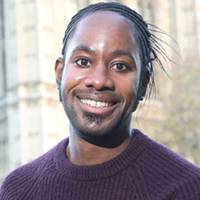
Jason’s research focuses on Race, Education and Social Justice. His publications include Considering Racialized Contexts in Education: Using Reflective Practice and Peer-Mentoring to support Black and Ethnic Minority educators (Routledge), Being Young, Black and Male: Challenging the dominant discourse (Palgrave) and Exploring Cool Britannia and Multi-Ethnic Britain: Uncorking the Champagne Supernova (Routledge). Jason was also a co-editor of The Runnymede School Report: Race Education and Inequality in Contemporary Britain.
Chair: Professor Becky Francis, CEO of the Education Endowment Foundation
Professor Becky Francis joined the EEF from the UCL Institute of Education (IOE), where she was Director of the IOE. Her previous roles include Director of Education at the Royal Society for the Encouragement of Arts, Manufactures and Commerce (RSA), and Professor of Education and Social Justice at King's College London.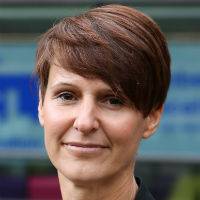
Becky has combined academic research and policy work in education throughout her career. She regularly serves as a consultant to the UK government and international agencies on education policy matters, and previously served as Standing Advisor to the UK Parliamentary committee responsible for scrutinising government policy on education. She is a frequent media commentator on education issues.
- What if… the world really did revolve around teenagers?
29 January 2020
Iroise Dumontheil, Reader in Cognitive Neuroscience, Birkbeck
Dr Iroise Dumontheil is a member of the Centre for Educational Neuroscience (UCL and Birkbeck) and the Centre for Brain and Cognitive Development (Birkbeck). Her research focuses on the typical development of social cognition and cognitive control during adolescence and their functioning in adulthood. Her studies combine a variety of methods to study brain and cognitive development including functional and structural neuroimaging, behavioural assessments, and genetics, as well as academic performance measures.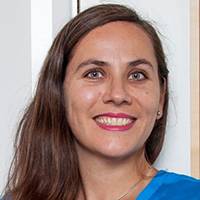
She is interested in the impact of cognitive training, from computerised games to mindfulness meditation practice, on adolescent cognition, as well as the potential implications of these various research strands for education. In 2015 she received the Spearman Medal, an early-career British Psychological Society award, and in 2017 the Elizabeth Warrington Prize from the British Neuropsychological Society.
Mark Lehain, Director, Parents and Teachers for Excellence
Mark Lehain trained as maths teacher in 2002 after a brief period working in the City, and then taught at a state school in Bedford. Having been Head of Department, and then Assistant Head at Wootton Upper School, in 2010 he left to lead the campaign to open Bedford Free School (BFS), one of the country’s first free schools. BFS opened in 2012, and he was Principal there until summer 2017.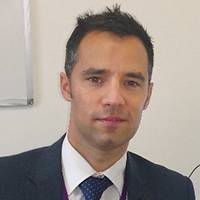
Mark is currently the Director of Parents and Teachers for Excellence, a group campaigning for higher standards in schools. When not advocating for educational reform, he can be found drinking copious quantities of coffee, running and pretending that he knows how to manage his four young daughters.
Mike Shooter, Psychiatrist
Mike has worked with the children, young people and families of Cardiff and the Valleys of South Wales for over 30 years. He was the first child psychiatrist to be elected as President of the Royal College of Psychiatrists and has been President, Chair, or Trustee of many national organisations. He is an Honorary Fellow of six Royal Colleges.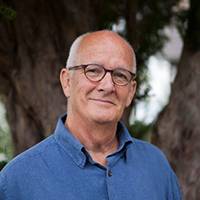
He has advised governments around the world on the provision of services and has spoken extensively on children's issues in the media and from the public platform. He has written and co-edited many articles, books, and chapters. His latest book, Growing Pains, is a distillation of his work. Mike has a recurrent depressive illness of his own, and the Growing Pains of the book are his own pains as well as those of his clients! He still lives in the heart of his clinical patch, surrounded by his wife, children, grandchildren and a host of animals.
Bettina Hohnen, Clinical Psychologist
Bettina is passionate about supporting the well-being of young people by strengthening relationships. She is a trained Clinical Psychologist and has worked individually with families for many years. Her combined clinical and academic background means she can translate complex research in the area of mental health and neuroscience to inform parents and teachers. She regularly gives talks and runs workshops with the aim of aligning parents and teachers with the developmental needs of young people.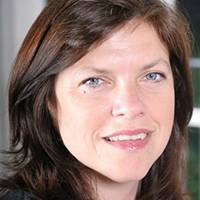
Bettina has recently published a book with two colleagues called The Incredible Teenage Brain: Everything You Need to Know to Unlock a Teen’s Potential, which is a book for adults supporting teenagers. It takes the cutting edge brain research and considers what it means in a day to day context for parents, teachers and professionals supporting young people.
Chair: Professor Sue Rogers, Interim Director of the UCL Institute of Education
Sue is an early childhood development and primary education specialist with research interests in pedagogy and curriculum, the role of play in early learning, professional learning in the early childhood workforce, and approaches to evidence-informed practice. Her recent publications include A Guide to Early Years and Primary Teaching (2016, edited with Dominic Wyse), Adult Roles in the Early Years (2012, with Janet Rose), and Rethinking Play and Pedagogy: Concepts, Contexts and Cultures (2011).
- What if… our education system changed for good in light of Covid-19? Part 1: Schools
18 June 2020
Mary Bousted, Joint General-Secretary, National Education Union
Mary represents the interests of her members to the government, and to a wide variety of other stakeholders. She contributes regular articles for newspapers and education journals and appears frequently on national media. She sits on the executive committee of the Trades Union Congress (TUC) and was a member of the ACAS board. Mary previously worked in higher education at York University, Edge Hill University and at Kingston University where she was Head of the School of Education. Prior to this Mary was a Head of English, and English teacher in comprehensive schools in North London.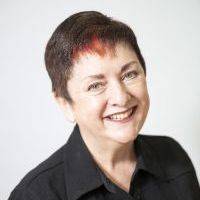
Jon Coles, Chief Executive, United Learning
Sir Jon Coles is Chief Executive of United Learning, a group of over 80 independent schools and academies established 130 years ago. Prior to this, Jon spent four years on the Board of the Department for Education as Director General for Schools and then for Education Standards, responsible for policy areas including the National Curriculum Review, the Academies Act 2010 and National Challenge. Before then, as Director of 14-19 Reform, he led work to increase participation in education and training post-16. Jon was also Director of London Challenge, responsible for developing the much-copied strategy to improve secondary education in London.
Natalie Perera, Executive Director and Head of Research, Education Policy Institute
Natalie is the Executive Director and Head of Research at the Education Policy Institute, an independent research institute which she co-founded in 2016. Prior to that, Natalie worked in the Department for Education where she led on research and policy interventions including on narrowing the gap between disadvantaged children and the rest and reform of the school funding system. Between 2014 and 2015, Natalie was seconded to the Cabinet Office where she worked in the Deputy Prime Minister’s Office. Natalie is also a Director of a Multi-Academy Trust in South London and a Trustee of the charities, The Fair Education Alliance and Causeway Education.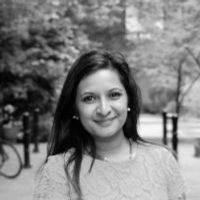
Mrunal Sisodia, Co-Chair, The National Network of Parent Carer Forums (NNPCF)
Mrunal is the East of England steering group member for the National Network of Parent Carer Forums (NNPCF) and since July 2017 has the pleasure of serving as Co-Chair. The NNPCF is made up of 151 local parent carer forums made up of parents and carers of children and young people with special educational needs and/or disabilities. In his role with the NNPCF, Mrunal sits on numerous national boards and works closely with national government including the Department for Education, NHS England and Ofsted. Before joining the NNPCF Steering Group, Mrunal was a director at Leonard Cheshire Disability and has extensive experience of the charity sector developing strategy and new services. Prior to this Mrunal was a director of strategic change management at Deutsche Bank.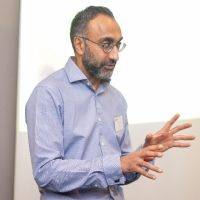
Chair: Sue Rogers, Interim Director, UCL Institute of Education
Sue is an early childhood development and primary education specialist with research interests in pedagogy and curriculum, the role of play in early learning, professional learning in the early childhood workforce, and approaches to evidence-informed practice. Her recent publications include A Guide to Early Years and Primary Teaching (2016, edited with Dominic Wyse), Adult Roles in the Early Years (2012, with Janet Rose), and Rethinking Play and Pedagogy: Concepts, Contexts and Cultures (2011).
- What if... our education system changed for good in light of COVID-19? Part 2: Further Education
25 June 2020
David Hughes, Chief Executive, Association of Colleges
David Hughes became Chief Executive of the Association of Colleges in September 2016. Before that he was CEO at Learning and Work Institute, a leading think tank, research and policy organisation, which was formed in 2016 from a merger he led between the National Institute of Adult Continuing Education (NIACE) and Inclusion. From 2000 to 2011, he worked in senior roles at the Skills Funding Agency (SFA) and the Learning and Skills Council (LSC). David has held many Board and Committee roles, including a few years as Vice-Chair of the East Midlands Regional Assembly in the 1990s. He played a leading role in establishing the new Education and Training Foundation in 2013.
Stuart Rimmer, Chief Executive, East Coast College

Stuart Rimmer is Principal and Chief Executive at East Coast College. He moved to East Anglia six years ago from the North West to take up the principal role in Great Yarmouth before leading the merger of Lowestoft College and Great Yarmouth College in 2017 and then a further merger between East Coast College and Lowestoft Sixth Form College in 2018. He has worked in education at a senior level for over 15 years following a career in textile manufacturing and financial services.
Stuart now serves on the New Anglia LEP Skills Board and also chairs the national policy group relating to mental health at the Association of Colleges. He is considered to have a leading national role in the development of wellbeing and mental health within education. He contributes regularly to the Times Educational Supplement and many other national publications. He is a Visiting Senior Fellow for leadership and management at the University of Suffolk and also works as a wellbeing and performance coach with corporate clients.
Jill Westerman, Trustee and Vice-Chair, Further Education Trust for Leadership (FETL)
Jill has worked in adult education for over 30 years and was principal of the Northern College in Barnsley until she retired in the summer of 2018. She is a trustee and Vice Chair of FETL and a governor of City Lit. She has published a number of articles and chapters on leadership and teaching and learning. Jill was awarded a CBE in 2010 for services to adult education.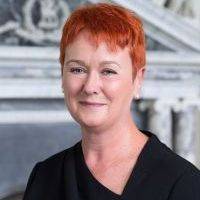
Cindy Rampersaud, Senior Vice President, BTEC and Apprenticeships, Pearson Education
Cindy is Senior Vice President, BTEC and Apprenticeships at Pearson Education where she is responsible for the development of all Pearson’s UK technical, vocational and apprenticeship qualifications which are delivered to over one million learners a year. She moved into the education sector in 2011 when she took up the role of Deputy Principal at City and Islington College. In 2016 she was appointed a Deputy Further Education Commissioner by the Department for Education working on the Government's review of the Further Education sector nationally. Cindy is a member of the Commission on Sustainable Learning and she currently sits on the board of The Speakers Trust and is an honorary lifetime member of The Children's Society having served as a Trustee for eight years.
Chair: Alison Fuller, Professor of Vocational Education and Work and Pro-Director (Research and Development), UCL Institute of Education
Alison is Professor of Vocational Education and Work and Pro-Director (Research and Development) at the IOE. Prior to joining the IOE in 2013, she was Director of Research in the School of Education at the University of Southampton. Alison’s substantive research interests are in the areas of vocational education and training, skills, apprenticeship policy and practice, workplace learning and education - work transitions. She has undertaken numerous research projects for funders such as the The Economic and Social Research Council (ESRC), the Nuffield Foundation and the EU and Gatsby Foundation. She acted as Specialist Advisor to the House of Commons Select Committee scrutinising apprenticeship policy. Alison is a full panel member of the REF2021 UoA23 Education sub-panel.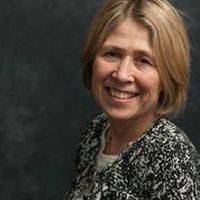
- What if... our education system changed for good in light of COVID-19? Part 3: Higher education
2 July 2020
Paul Ashwin, Professor of Higher Education, Lancaster University
Paul Ashwin is Professor of Higher Education and Head of the Department of Educational Research at Lancaster University. Paul’s research focuses on teaching, learning and curriculum practices in higher education and how they are shaped by higher education policies. His recent books include ‘Transforming University Education: A Manifesto’ (Bloomsbury 2020) and he is the lead author of 'Reflective Teaching in Higher Education' (Bloomsbury 2015, 2020). Paul is Deputy Director of the Centre for Global Higher Education (CGHE). He is a coordinating editor for the international journal ‘Higher Education’ and co-editor of the Bloomsbury book series ‘Understanding Student Experiences of Higher Education’.
Allison Littlejohn, Professor and Director of Knowledge Lab, UCL Institute of Education
Allison is Director of the UCL Knowledge Lab, a centre exploring the future of education with technology at UCL Institute of Education. She is a learning scientist, specialising in professional and digital learning. Allison was formally a Dean (Learning and Teaching), in the College of Social Sciences, University of Glasgow. She was also Academic Director of Digital Innovation at the Open University (2015-2019), and the Founding Director of the Caledonian Academy at Glasgow Caledonian University (2006-2014), where she was also the Senior Researcher for Royal Dutch Shell (2008-2010). She has been awarded over 40 research grants, which have been published as six books and over 250 articles.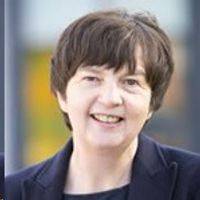
Aaron Porter, Associate Director (Governance), Advance HE
Aaron is the Associate Director (Governance) for Advance HE. He is also the Associate Director of Policy and Engagement for IDP Connect. He is a governor at Goldsmiths University, non-executive chair of the Board of Governance at Nelson College London and non-executive chair of the BPP University board. Aaron was previously the President of the National Union of Students (NUS). He has served on a number of boards including UCAS, Higher Education Funding Council for England (HEFCE), the Office of the Independent Adjudicator (OIA), the Higher Education Academy (HEA) and the council of the University of Leicester. He is a Fellow of the Royal Society of the Arts and has an Honorary Doctorate from the University of Leicester.
David Willetts, President, Resolution Foundation
The Rt Hon. Lord Willetts FRS is the President of the Resolution Foundation. He served as the Member of Parliament for Havant (1992-2015), as Minister for Universities and Science (2010-2014) and previously worked at HM Treasury and the Number 10 Policy Unit. Lord Willetts is a visiting Professor at King’s College London, a Board member of UK Research and Innovation (UKRI) and Chair of The Foundation for Science and Technology. He is an Honorary Fellow of Nuffield College, an Honorary Fellow of the Royal Society and the Chancellor of the University of Leicester. Lord Willetts has written widely on economic and social policy. His books include 'A University Education' and the second edition of his book 'The Pinch', that was published in November 2019.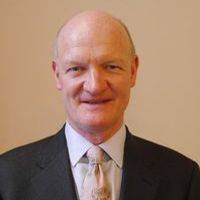
Chair: Sue Rogers, Interim Director, UCL Institute of Education
Sue is an early childhood development and primary education specialist with research interests in pedagogy and curriculum, the role of play in early learning, professional learning in the early childhood workforce, and approaches to evidence-informed practice. Her recent publications include A Guide to Early Years and Primary Teaching (2016, edited with Dominic Wyse), Adult Roles in the Early Years (2012, with Janet Rose), and Rethinking Play and Pedagogy: Concepts, Contexts and Cultures (2011).
 Close
Close

